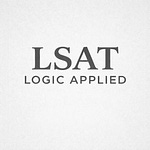This Day in Legal History: Alaska Purchased for a Steal
On this day in legal history, the U.S. Senate made a significant decision that would expand the nation's territory and shape its future. On April 9, 1867, senators voted to ratify the Treaty with Russia, approving the purchase of Alaska for $7.2 million–about $265 million in 2024 dollars. This strategic move, orchestrated by U.S. Secretary of State William Seward, was initially motivated by a desire to limit British expansion in the region. Despite its substantial future benefits, the acquisition was met with skepticism and ridicule, earning the moniker "Seward's Folly" among detractors who saw little value in the remote, icy territory.
Critics of the purchase could scarcely foresee the immense wealth that Alaska would bring to the United States. The discovery of gold in the late 19th century triggered a rush that attracted thousands of prospectors and settlers, dramatically increasing the region's population and economic activity. In the 20th century, the discovery of vast oil reserves further solidified Alaska's value, contributing significantly to the nation's energy resources.
Seward's vision for Alaska extended beyond mere territorial expansion. He believed in the potential for economic growth and the strategic importance of Alaska in bolstering America's standing as a global power. Over time, his once-controversial decision has been vindicated, as Alaska has become a crucial asset to the United States, offering not only natural resources but also significant geopolitical advantages.
The purchase of Alaska stands as a testament to the foresight of leaders who dared to invest in the future, despite facing immediate criticism and doubt. It reminds us of the importance of looking beyond the present to the long-term benefits of strategic decisions. Today, Alaska is celebrated for its breathtaking landscapes, rich cultural heritage, and abundant natural resources, a far cry from the "folly" it was once considered. The anniversary of the Senate's approval of its purchase is a moment to reflect on the transformative power of visionary leadership and the enduring impact of legal and political milestones in shaping our nation's destiny.
Federal judges in the United States are currently facing a significant dilemma regarding how to respond to an increasing number of personal threats, amidst ethical and professional limitations on public commentary. This concern is highlighted by Chief Judge James Boasberg's acknowledgment of the judiciary's awareness and discussions on how to publicly address these threats, emphasizing the challenges posed by ethical restrictions and the desire to maintain impartiality. The situation escalated when Senior US District Judge Reggie Walton openly criticized the rise in threats against judges and their families on CNN, following disparaging remarks by former President Donald Trump about a judge's family member. This move by Walton, alongside comments from other judges like Edward Davila and public statements from legal and judicial figures, signals a potential shift towards a more vocal stance by the judiciary against such threats.
The judiciary's increased visibility on this issue comes in response to a notable uptick in violent incidents and threats, notably the attack on Judge Esther Salas's family and the swatting incident targeting Judge Tanya Chutkan. The judiciary is grappling with how to balance their role as neutral arbiters with the need to address and publicize these threats for the sake of their safety and the integrity of the judicial system. The ethical considerations are complex, as judges are traditionally expected to refrain from public commentary that could compromise their impartiality, but the increasing personal risks and political attacks on the judiciary have prompted some to speak out.
Legal experts and judicial ethics codes offer some leeway for judges to engage in extrajudicial activities that do not undermine their impartiality, suggesting that Walton's and others' actions may be unconventional but not necessarily unethical. However, the backlash from conservative groups and the challenges of navigating these ethical waters highlight the precarious position judges find themselves in as they attempt to defend the judiciary and uphold the rule of law in an increasingly polarized environment.
Judges Grapple With When to Speak Publicly Amid Rising Threats
A recent ruling by New York Supreme Court Justice Kevin Bryant, which deemed certain state adult-use cannabis regulations unconstitutionally vague, is anticipated to ignite a wave of legal challenges. This landmark decision, pinpointing five specific regulatory requirements as arbitrary and lacking substantial justification, is set to become a critical precedent for future legal disputes in the cannabis industry. Bryant's critique focuses on the prohibition of marketing and promotion through third-party platforms for retail dispensaries, a restriction he invalidated for its lack of sound basis. This ruling not only impacts current regulations but opens the door for targeted challenges against specific parts of New York’s cannabis laws, including the "true party of interest" and "buffer zone" regulations.
Legal experts foresee that upcoming lawsuits will likely hone in on these individual regulatory components rather than attempt to overturn the entire regulatory framework, given the practical challenges such as the statute of limitations for challenging government actions. Moreover, the ruling highlights contentious areas such as investment restrictions and the approval process for dispensary locations, both of which could become focal points for litigation due to their complex nature and the confusion they generate among cannabis business owners.
The state's stringent investor restrictions and the proximity protection rules, which establish buffer zones between dispensaries, schools, and churches, have been particularly controversial. These rules have been criticized for creating operational confusion and for potentially discriminating against cannabis businesses in comparison to other industries, such as alcohol. Legal practitioners and stakeholders hope that the Office of Cannabis Management will develop a clearer process for addressing grievances, thus preventing further recourse to litigation. This development suggests a critical juncture for New York's cannabis industry, underscoring the need for regulatory clarity and fairness in the burgeoning market.
NY Judge’s Cannabis Ruling Opens Door for More Challenges
Tesla has reached a settlement in a lawsuit related to a fatal crash in 2018 involving its Autopilot system, just before the trial was set to commence. The accident, which resulted in the death of 38-year-old Apple engineer Walter Huang, occurred when his Model X veered into a highway barrier while operating on Autopilot. The family of the deceased argued that the Autopilot system was at fault, alleging it steered the vehicle off course. Tesla, however, contended that Huang had been distracted, playing a video game, and misused the Autopilot feature at the time of the crash.
The terms of the settlement have not been disclosed, and the case is part of a broader pattern of lawsuits challenging the safety and reliability of Tesla's driver-assistant technology. This settlement comes amid Tesla's aggressive promotion of its self-driving technology, which CEO Elon Musk has frequently highlighted as a cornerstone of Tesla's future success. Despite the settlement, Tesla faces ongoing scrutiny over Autopilot, with the U.S. National Highway Traffic Safety Administration investigating over 956 incidents where the system was reportedly engaged.
Experts in autonomous vehicle law note that Tesla's decision to settle may signal to other attorneys the possibility of future settlements in similar cases. This case follows two prior instances in California where Tesla successfully argued that the drivers involved failed to follow guidelines to maintain control while using the system. Amidst these legal challenges, Tesla continues to advance its automated driving technology, with Musk announcing plans for a self-driving robotaxi reveal and offering trials of its Full Self-Driving technology to U.S. customers.
The lawsuit and its settlement occur against a backdrop of Tesla battling to maintain its reputation amidst weakening sales and controversial comments from Musk, underscoring the delicate balance between innovation and safety in the development of autonomous driving technologies.
Tesla settles case over fatal Autopilot crash of Apple engineer | Reuters
Tesla Settles Over Fatal Autopilot Crash on Eve of Trial (2)
In a landmark case reframing the legal if not moral responsibilities of gun-owning parents, Jennifer and James Crumbley, the parents of a Michigan teenager who carried out a fatal school shooting in 2021, are set to be sentenced to up to 15 years in prison after being convicted of manslaughter. This case marks a rare instance in the United States where parents have been held legally accountable for a school shooting conducted by their child. Their son, Ethan Crumbley, who was 15 at the time of the Oxford High School shooting, has already been sentenced to life in prison without parole after pleading guilty to first-degree murder among other charges.
The prosecution argued that the Crumbleys bore criminal negligence by gifting Ethan a 9mm semi-automatic handgun for Christmas and ignoring warning signs of his deteriorating mental health and potential for violence. Despite defense arguments claiming the parents could not have predicted the tragedy, their conviction has set a significant precedent in the U.S., where school shootings are tragically common, yet legal accountability for guardians remains rare.
The Crumbleys' trial spotlighted the crucial issue of gun accessibility to minors, emphasizing the need for greater accountability among gun-owning parents. It was revealed during the trial that Ethan obtained the weapon used in the shooting, which claimed four lives, from his parents, who had purchased it for him as a gift. On the day of the shooting, despite being summoned to the school due to Ethan's alarming behavior and advised to seek counseling for him, the Crumbleys opted to leave him in school without inquiring about the gun.
This case, groundbreaking in its charges and convictions, resonates deeply within a country grappling with persistent school violence and opens up broader conversations about parental responsibility and gun safety laws.
Parents of Michigan school shooter to be sentenced in rare US case | Reuters
In my column this week, I delve into the complexities surrounding the state and local tax (SALT) deduction cap, focusing on how the quashing of certain loopholes is only part of a broader conversation about taxpayer equity. The recent federal court decision to dismiss challenges by New York, New Jersey, and Connecticut to the SALT deduction cap highlights a critical aspect of tax law, namely the charitable deduction loophole, designed to work around the cap set by the Tax Cuts and Jobs Act. However, a significant loophole remains open: the pass-through entity mechanism, which allows taxpayers to bypass the cap through certain business structures, highlighting a disparity in tax treatment that benefits those with the means for complex tax planning.
This disparity is particularly pronounced in high-tax states, where residents face a substantial burden due to the $10,000 cap on SALT deductions. States' creative responses, including laws that allow pass-through entities to elect to pay state income taxes at the entity level, underscore the lengths to which jurisdictions will go to mitigate the cap's effects. This situation creates a paradoxical political landscape, where the SALT cap's impact crosses typical party lines, making it a national issue rather than a partisan one.
The broader implications of the SALT cap, and the loopholes that have arisen as a result, suggest a need for fundamental tax reform. The cap's introduction was controversial, perceived by many as a targeted move against high-tax, predominantly Democratic states. Yet, the ensuing debates and legal challenges reveal a more complex reality about fairness and equity in the tax system. The existence of the pass-through entity loophole not only undermines the intent behind the SALT cap but also signals a larger issue with the tax code's ability to adapt to modern financial strategies.
I argue that the current state of affairs regarding the SALT cap is untenable. The solution should not lie in perpetuating a cat-and-mouse game of loopholes and legal challenges but in a comprehensive reassessment of the cap itself. Whether by eliminating the cap altogether or ensuring its uniform application, the goal must be to achieve a tax system that is equitable, transparent, and reflective of contemporary fiscal realities.
Quash SALT Deduction Cap Loopholes to Advance Taxpayer Equity













